Filter by
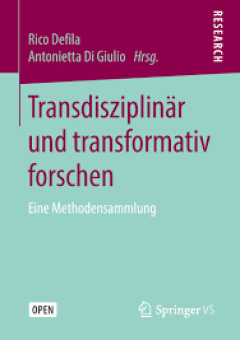
Transdisziplinär und transformativ forschen : Eine Methodensammlung
Dieses Open Access Buch ist ein Beitrag zur Methodik transdisziplinärer Forschung, und zwar für transformative wie nicht-transformative Forschung, für solche innerhalb wie außerhalb von Reallaboren. Methoden der Wissenserzeugung, Wissensintegration und Transformation werden ausführlich beschrieben und illustriert, so dass Dritte sie umsetzen können. Entwickelt wurden diese Methoden von Re…
- Edition
- -
- ISBN/ISSN
- 9783658215309
- Collation
- -
- Series Title
- -
- Call Number
- -

Sustainability Standards and Global Governance : Experiences of Emerging Econ…
This open access book focuses on the issue of sustainability standards from the perspective of both global governance frameworks and emerging economies. It stems from the recognition that the accelerated pace of economic globalization has generated production and consumption patterns that are generating sustainability concerns. Sustainability standards (and regulations) are increasingly being u…
- Edition
- 1
- ISBN/ISSN
- 9789811534737
- Collation
- XXVII, 224 hlm; ill., lamp.,
- Series Title
- -
- Call Number
- -
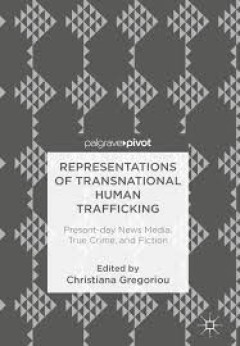
Representations of Transnational Human Trafficking : Present-day News Media, …
This open access edited collection examines representations of human trafficking in media ranging from British and Serbian newspapers, British and Scandinavian crime novels, and a documentary series, and questions the extent to which these portrayals reflect the realities of trafficking. It tackles the problematic tendency to under-report particular types of victim and forms of trafficking, and…
- Edition
- -
- ISBN/ISSN
- 9783319782140
- Collation
- -
- Series Title
- -
- Call Number
- -

Clinical Text Mining : Secondary Use of Electronic Patient Records
This open access book describes the results of natural language processing and machine learning methods applied to clinical text from electronic patient records. It is divided into twelve chapters. Chapters 1-4 discuss the history and background of the original paper-based patient records, their purpose, and how they are written and structured. These initial chapters do not require any tec…
- Edition
- -
- ISBN/ISSN
- 9783319785035
- Collation
- -
- Series Title
- -
- Call Number
- -

Inklusives Wachstum und wirtschaftliche Sicherheit : Erkenntnisse ökonomisch…
Diese Open Access Buch geht den Fragen nach, wie inklusives Wachstum und wirtschaftliche Sicherheit entstehen, welche Rahmenbedingungen der Staat setzen und welche Reformen er auf den Weg bringen muss und wie sich wirtschaftspolitische Maßnahmen auswirken. Die besten Studierenden der Universität St. Gallen fassen prägnant und verständlich wichtige Ergebnisse der ökonomischen Spitzenforschu…
- Edition
- -
- ISBN/ISSN
- 9783658213442
- Collation
- -
- Series Title
- -
- Call Number
- -

Exploring Corporate Human Rights Responsibilities in OECD Case Law
This open access book consolidates a collection of scholarly papers presented at the academic conference titled "Corporate Human Rights Responsibility in OECD Case Law: Actors, Issues, Responsibilities, and Remedies", held on 4 and 5 May 2023. The conference was organized by the OECD Case Law Project at Friedrich-Alexander-Universität Erlangen-Nürnberg. The book is divided into three section…
- Edition
- 1
- ISBN/ISSN
- 978-3-031-75717-4
- Collation
- VIII, 217
- Series Title
- -
- Call Number
- -

Angels and Other Cows : A Celestial Adventure into AI Worlds, the Social Good…
- Edition
- -
- ISBN/ISSN
- 978-3-031-60401-0
- Collation
- -
- Series Title
- -
- Call Number
- -
- Edition
- -
- ISBN/ISSN
- 978-3-031-60401-0
- Collation
- -
- Series Title
- -
- Call Number
- -
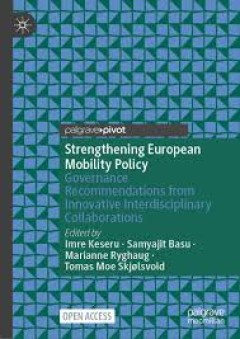
Strengthening European Mobility Policy : Governance Recommendations from Inno…
This open access book showcases innovative collaborations between the Social Sciences and Humanities (SSH) and Science, Technology, Engineering, and Mathematics (STEM) disciplines to benefit European mobility policy. Each chapter has been researched by a team encompassing both social and technical expertise. The book presents nine policy recommendations aimed at enhancing mobility and logistics…
- Edition
- -
- ISBN/ISSN
- 9783031679360
- Collation
- -
- Series Title
- -
- Call Number
- -
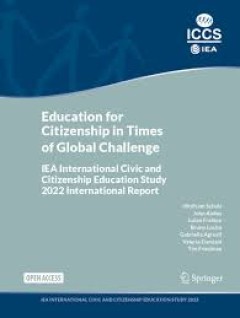
Education for Citizenship in Times of Global Challenge : IEA International Ci…
This open access book investigates the ways in which young people around the world are prepared to undertake their roles as citizens. It presents the international results from the third cycle of the study IEA’s International Civic and Citizenship Education Study (ICCS 2022). Based on data from 24 countries or benchmarking participants from Europe, Latin America, and Asia, ICCS 2022 studies c…
- Edition
- -
- ISBN/ISSN
- 9783031656033
- Collation
- -
- Series Title
- -
- Call Number
- -
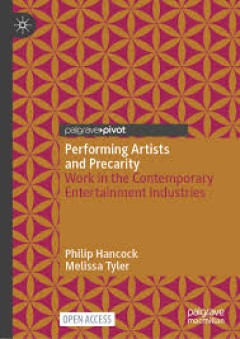
Performing Artists and Precarity : Work in the Contemporary Entertainment Ind…
This open access book focuses on the distinctive experiences of freelance and self-employed live performers in the UK’s live entertainment industries It provides an in-depth account of their working lives during COVID-19, showing how their experiences of the pandemic provide insight into the different types of precarity shaping what it means to be a live performer.
- Edition
- -
- ISBN/ISSN
- 9783031661198
- Collation
- -
- Series Title
- -
- Call Number
- -
 Computer Science, Information & General Works
Computer Science, Information & General Works  Philosophy & Psychology
Philosophy & Psychology  Religion
Religion  Social Sciences
Social Sciences  Language
Language  Pure Science
Pure Science  Applied Sciences
Applied Sciences  Art & Recreation
Art & Recreation  Literature
Literature  History & Geography
History & Geography